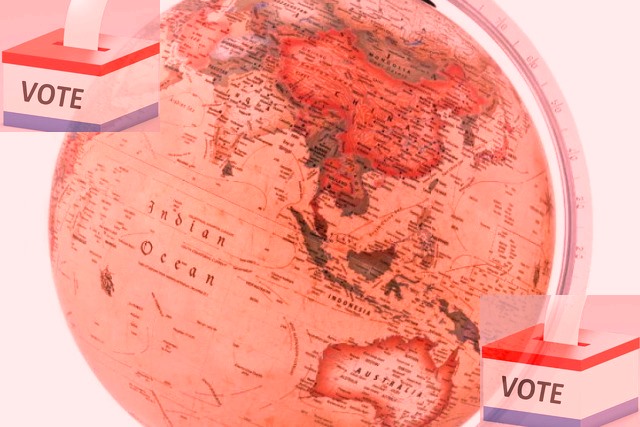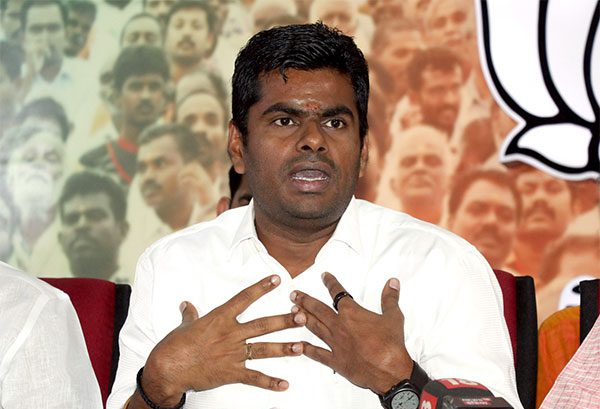This year could be the year of national elections on Earth. In 64 countries (plus the European Union), two billion humans or one in every four of the eight billion of us that populate the planet will be set to go to the polls. An estimated 1.16 billion of these voters will be from the South Asian countries of India, Pakistan, Bangladesh, and Sri Lanka, with India alone accounting for more than 900 million voters, which is 100 million more than the number that was eligible to vote in the previous national election held in 2019.
After you have wrapped your head around those staggering numbers, consider also how the outcomes of some of those elections could impact the state of the world here on our planet. Take the big ones first. The US will hold its presidential elections in November. As of now, indications are that former Republican President Donald Trump, who served as the 45th president from 2017 to 2021, could be his party’s nominee for the 2024 election. Trump is facing a slew of legal problems but this does not seem to deter his supporters: with 52% of Republican voters or Republican-leaning independent voters, Trump is way ahead of his nearest rivals in the race for nomination.
If Trump, 77, is nominated, the face-off will likely be between him and the Democratic incumbent Joe Biden, 81. If Trump wins, as many analysts think he will if he is nominated, his policies and actions as President of the US will affect not only his country but also the state of the world. More on that soon. For now, turn to another election that will take place this year.
Two months from now, in March, Russia will go to the polls to elect a President. In all likelihood it will be Vladimir Putin who will be re-elected. Putin has been in charge of Russia since late 1999 or more than 21 years and is eligible for re-election this year, as a result of constitutional amendments that he orchestrated in 2020. The amendments reset his previous terms and allowed him to seek two more six-year terms, potentially extending his rule until 2036. Putin is 71 so, in theory, he can rule till he is 84.
Russia is a democracy only in theory. In reality it is an authoritarian state where elections are not free or fair. The Kremlin, Russia’s seat of power, controls the media, the security forces, and the election commission, and Putin has effectively suppressed all opposition, barred many of rivals from contesting the elections and either imprisoned dissenters or exiled them.
A Trump-Putin Combo? If Putin is reelected, Russia will likely continue its aggressive foreign policy, especially in Ukraine and Eastern Europe, and face more international sanctions and isolation. Putin will also tighten his grip on domestic politics and suppress any dissent or opposition. If Trump is elected in 2024, the US will face more political and social turmoil, as Trump will try to overturn his 2020 election loss and pursue his populist agenda. Trump will also undermine democratic institutions and norms, and alienate many US allies and partners.
A Trump-Putin combo would mean that the world could face a more unstable and unpredictable geopolitical situation. Trump and Putin have a long history of mutual admiration and personal rapport, but their interests and agendas are often at odds. Trump could weaken NATO and other US alliances, while Putin could exploit the chaos and expand his influence in regions like Ukraine, Syria, and the Middle East. The risk of conflict and escalation between the two nuclear powers would increase, as well as the challenges for global cooperation on issues like climate change, human rights, and cybersecurity.
A third term for Modi? The biggest national elections this year will be in India, which has the largest electorate in the world, with over 900 million voters eligible to vote for the lower house of Parliament, Lok Sabha, which has 543 seats. India has a multi-party system, with two major alliances competing for power this year: the incumbent National Democratic Alliance (NDA), led by the Bharatiya Janata Party (BJP) and Prime Minister Narendra Modi, and the opposition Indian National Developmental Inclusive Alliance (I.N.D.I.A.), led by the Indian National Congress (INC) and its president, Mallikarjun Kharge.
India’s elections are held in multiple phases, spanning over several weeks, to ensure security and logistical arrangements. In 2019, the elections were held in seven phases, from 11 April to 19 May. The schedule for 2024 is yet to be announced by the Election Commission of India (ECI).
India’s elections also involve millions of polling staff, security personnel, electronic voting machines, and observers. In 2019, there were over 10 lakh polling stations, 17.4 lakh voting machines, and 23 lakh security personnel deployed across the country.
India’s Prime Minister Narendra Modi is widely expected to win a third term in 2024, as he enjoys a strong popularity and because the Opposition is weak. In recent months, his party has scored significant victories in state elections, which could be an indication that voters’ support for it is strong.
A third term may see India becoming one of the top three economies in the world. India’s economy is one of the largest and fastest-growing in the world. According to the latest data from the World Bank, India’s nominal GDP was $3.73 trillion in 2023, making it the fifth-largest economy in the world after the USA, China, Japan, and Germany. India’s GDP growth rate was 7.6% in the second quarter of 2023-24, higher than most of the major economies.
India’s per capita income was $2,389 in 2022, which ranked 112th in the world. India’s per capita GDP on PPP basis was $8,379 in 2022, according to the World Bank. In comparison, China’s per capita GDP on PPP basis was $21,476 in 2022. This means that China’s per capita GDP on PPP basis was more than twice as high as India’s.
Prime Minister Modi faces some challenges such as poverty, inequality, infrastructure gaps, environmental issues, and fiscal deficits. However, during his tenure, which began in 2014, India has also undertaken several reforms and initiatives to boost its economic potential, such as the Goods and Services Tax (GST), the Make in India campaign, the Digital India program, and the Atmanirbhar Bharat Abhiyan. India aims to become a $5 trillion economy by 2027 and a $10 trillion economy by 2032.
Led by Modi, India recently had a successful G20 presidency and a lunar mission. For a country of its size, it has also managed a satisfactory a post-COVID-19 recovery and achieved robust growth. India has also been part of a new Indo-Pacific alliance against China, along with the US, Australia, and Japan, to counter China’s expansionist ambitions and assert India’s role as a key player in the region.
In crisis areas such as the Russian aggression in Ukraine and the Israel-Hamas war, India has protected its own economic and political interests instead of taking sides. That sort of strategy could be expected to continue on the international front. Relations with China remain tense, though, especially on border disputes between the two countries although under Modi, the foreign policy targeted at China and Pakistan (with which there are continuing disputes on the western borders of the country) has been assertive.
Modi may, however, face some challenges in balancing the interests of different Indian states and regions, as well as in addressing the issues of social justice, environmental protection, and democratic rights.
Elections in the rest of South Asia. India’s neighbours, Pakistan, Bangladesh, and Sri Lanka, will also go to the polls this year. In Pakistan, elections are scheduled to be held in February but the Pakistan Senate has passed a resolution seeking to delay the elections due to security and weather concerns. The resolution is not binding and the final decision rests with the Election Commission of Pakistan. With the former Prime Minister Imran Khan in jail on corruption charges, the main contenders are the Pakistan Muslim League (N), led by former Prime Minister Nawaz Sharif, and the Pakistan Peoples Party, led by former Foreign Minister Bilawal Bhutto Zardari. In Pakistan, the army plays a key role in politics and the government and outcome of the election there will be keenly watched.
Elections will also take place this year in Bangladesh, where Sheikh Hasina of the Awami League has been in power since 2009 and where she is accused of silencing dissent and ruling with an authoritarian iron hand. She is expected to win another term.
India’s other neighbour, Sri Lanka, also goes to the polls this year. Two years ago, the then president of the island nation Gotabaya Rajapaksa was forced to flee his country after protests accused him for the country’s worst economic crisis in 73 years. Inflation had soared and the nation had turned bankrupt leaving millions in the tiny country unable to get food, fuel or healthcare. That was when the current President Ranil Wickremesinghe took over. But elections haven’t been held in Sri Lanka since 2018 and if a date is finally announced for this year, all eyes will be on who gets the people’s mandate. Wickremesinghe, who helped get a loan from the International Monetary Fund and has led several reforms to get the economy back on track, will likely contest and hope for a second term.
Other notable elections in the world include Indonesia, where the current incumbent Joko Widodo (aka Jokowi) is ineligible due to term limits.
Besides this, there will be elections in Iran, South Korea, Panama, and several African Nations, including Rwanda, Libya, Mali, and Ghana. As I said, this year is the year of elections on Earth.

